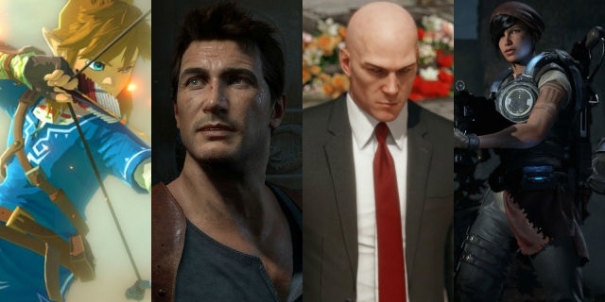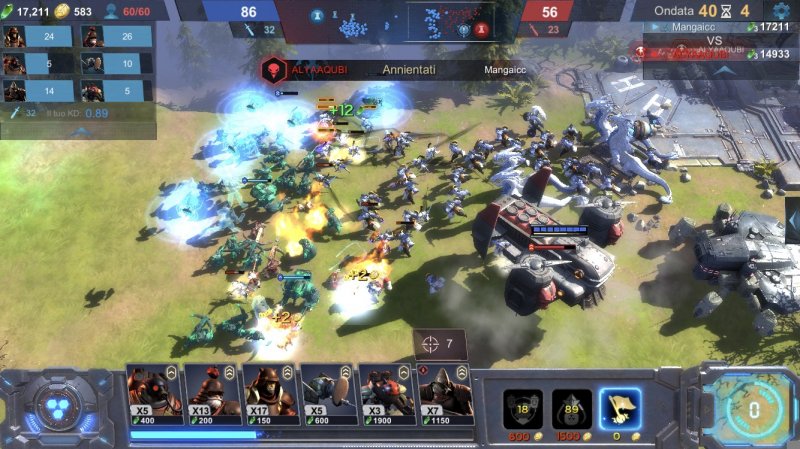Mid-generation consoles, virtual reality and post-launch updates
The user tends to give primary importance to the technical sector, an absolute value that has consequently led the market lords to make choic
es they could try to satisfy the demand for having the best games to see without waiting more than a shine to close a loop. Thus, half-generation consoles are born, which are just hardware upgrades that actually host the same games with the s
ame content as previous machines. As is the case with the PC, the consoles have now come up with the idea of offering consumers different bandwidths, and after PS4 Pro, Microsoft also plans to make the same move in late 2017, without however cutting off all the others consumers. This is a trend we saw born in the ‘ the year just passed, which – allowing sales – should represe
nt the new rule for the console world. In short, there are options for those who will buy the next consoles a few years after the release; then it is up to the consumer to understand what their needs are, if he feels the need to have a mere graphic upgrade (sometimes problematic as we have seen) or whether he prefers to do so.
By staying in the console, you can not help but talk about the arrival of virtual reality with PlayStation VR, which despite the obligation to bend to several technical compromises has been able to bring to homes what has been until recently a prerogative of the PC world.
He did it at an affordable price and offered a good amount of launch titles, but they did not manage to cover the tech-demo label or “ad hoc” experiences. This is still very tedious technology, which could be a good game alternative for the future but still presents too many unknowns. On all, the support and the pleasure it will have on the medium and long run.
Another trend that began to affirm in 2016 is the presence of important updates that add game elements that are not present at the launch, with the peace of those who buy the day one. The most striking case was No Man’s Sky, bu
t there are other examples (including illustrations) that have followed this policy that we do not like.While on the one hand it shows that development teams are keen on their products, they listen to fans and try to correct the shot, the reverse of the medal
is that incomplete launch games have become a bad habit software houses fail to observe more deadlines, development rhythms have become fierce and developers’ vision can also change “running”. We will see what will hold us in 2017 and whether this trend will take on significant significance.
Beautiful but not crazy, the trials of the triple A, the tradition that never dies
During the last days of the year we have been awarded the Spaziogames Awards, our annual awards that choose the best games of the categories we chose, culmin
ating in Goty 2016. Now that the year is over and the whole editorial has freed itself from we can say that this year is a fair year, with very few titles that can be regarded as unbeatable or really clamorous. The average level of productions was high, but it must be admitted that there were no disappointments, even from illustrious franchises that have come up with a quality not in line with modern standards and with the public’s tastes.
You do not need to make a list: our reviews and our insights have let you know and you know what worked out and what not. By making a budget, the titles to be played are counted on the fingers of a hand, while once again, from the indie undergrowth, there are some welcome surprises that we recommend to recover. For so-called Triple A, it could go much better, but we understand
that the advent of half-generation consoles may have changed the cards a little and overwhelmed the plans of different companies.Beyond this, a great fatigue is reported by large productions, which have in many cases recorded a drop in revenue over the past few years; symptom, this, that the replacement of old IPs with new ones is part of the primary needs of the most important software houses.
It should not be forgotten that the one that has just been spent was also the year of great returns, the games that made us wait for an eternity before presenting ourselves. We are talking about a part of Final Fantasy XV , great reboot for a historical saga (which has had a long and complicated gesture), and The Last Guardian , who despite the foulest predictions has managed to get into stores, enchant and keep intact the typical charm of the works of a great author.



